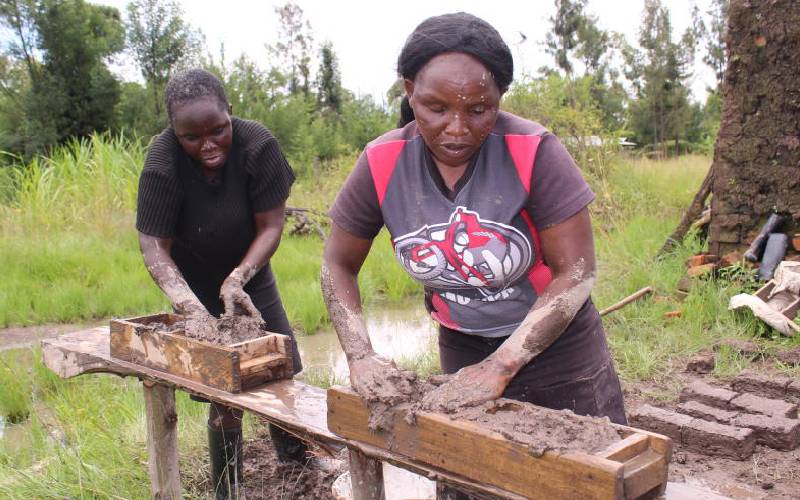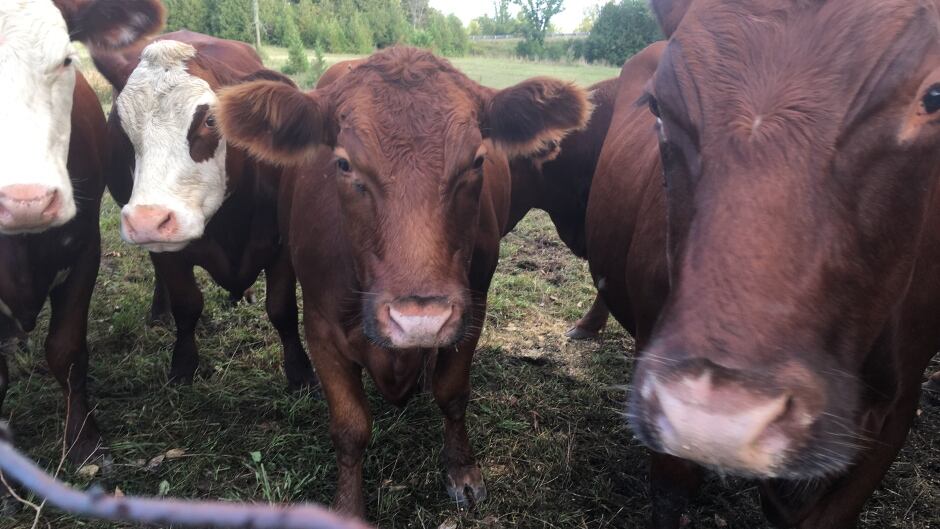They skillfully mould clay before neatly arranging them in rows to dry in the sun.
With minimal mistakes, three sisters swiftly go through the motions that when you meet them for the first time, you wouldn’t believe they are blind.
Nothing gives away their disability as they can carry out several activities without assistance.
Emily Chepkorir, 42, Margret Chepkirui, 38, and 30-year-old Caroline Chelangat were born blind.
Their elder brother, David Rotich is also blind. He is an ECDE teacher at Korara Special Needs School. Rotich is married with three children. Chelangat, too, is a qualified P1 teacher but is yet to land formal employment.
Theirs is a story of resilience and hope. Over the last two years, Chepkorir, Chepkirui and Chelangat have defied odds to perfect the art of making construction bricks.
Put them down
They said they have learnt to live with the disability but above all, they have not allowed it to put them down or dictate the course of their lives.
Other than making bricks, the sisters are also qualified tailors. They make bricks during the day and in the evening embark on sewing sweaters.
And they have mastered their environment, especially at home and the brick-making site. They move around easily unaided.
When The Standard visited their Kapsisoge village home in Bomet County, the siblings were racing against time to beat the deadline for an order a client had placed for bricks.
“Normally, we make up to 200 bricks in a day and each goes for Sh6,” says Chepkorir.
She came up with the bricks idea so they can supplement their earnings from sewing and sold it to her sisters who readily embraced it.
Chepkorir said they don’t want to be held back by their disability. “We did not want sympathy because we felt we can take care of ourselves and our family.”
“We hope to be a motivation to the society and all people who have any form of disability. They should know anyone can still live a fulfilling life despite being disabled.”
She said the high demand for bricks in the area and their proximity to Bomet Town motivated them to venture into the business.
“We always wanted to fend for ourselves. We want to eat from our sweat. Our parents encouraged us to persist because we are just like anyone else. We’ve never gone to the streets to beg and we pray to God that day will never come,” said Chepkorir.
Their mother, Elizabeth Chesimet, 70, helps them sell the sweaters and find a market for the bricks.

Emily Chepkorir and her sister Margret Chepkirui show a pile of bricks they made.
But Chepkorir said their competitors have complicated business for them by selling their bricks more cheaply.
“Also, unlike our competition, we are forced to hire people to dig up the soil for us before we mix it with water to make mud. That is a disadvantage to us because it is an additional cost,” says Chepkorir.
Chepkurui said:
“We are not the only ones making bricks in this area. Even though competition is high, we do not want to be a burden to our family and the community because of a disability.”
She said neighbours who despised them in the past have now learnt to respect them because of their hard work.
“At some point, some people refused to associate with us. They thought having four blind children was not normal and so they avoided us. However, over time, they have realised we are human beings, just like them,” said Chepkorir.
Making bricks
She added:
“After the day’s work making bricks, Chepkirui and I retreat to our home and start sewing sweaters. Sometimes, we spend the whole night sewing, especially when schools are about to reopen because that is when parents order sweaters for their children. And the two businesses have sustained us this far.”
However, the siblings have never been able to secure a strategic place to set up their sewing business.
They said they have asked the county social services department to help them secure a stall at the main market in Bomet Town but there has been no response.
Chesimet said it was tough raising four blind children.
“But I decided to accept the situation and instead of complaining, I started thinking of how I could secure a future for them,” she said.
This was after her efforts to convince doctors to operate on her children’s eyes with hopes it would restore their sight failed. Chemiset said she was distraught when doctors confirmed her children were blind.
She said medics refused to operate on them claiming the condition could not be corrected as it was genetic.
“I did not believe the doctors’ reports that the blindness was genetic because we do not have a history of blindness in our family or their father’s. I went to seven hospitals before I let go and accepted the situation,” Chemiset said.
She said she knew they needed to have an education and took them to school.
Proactive
she said.
“They are proactive because I exposed them to education early. Even though we felt the society had shunned us because of this condition, time came when we decided to look at the future and what it had for us instead of focusing on the challenge,”
The siblings attended Kibos Special Needs Primary School in Kisumu and Thika School for the Blind for their secondary education. Chepkorir and Chepkirui went to Meru Technical Training College where they learnt sewing, farming and knitting while Chelangat and their brother went to Mosoriot Teachers College.
Their mother recalled how she struggled to educate her children. She said neighbours could not understand why someone would have four blind children.
A neighbour, Philip Ruto, said the three women have become a source of inspiration in the community.
“They have made the society look at people with disability differently,” said Ruto.
Another neighbour, Evaline Langat, said the local community has been challenged by the four siblings.
“Their hard work is impressive and they do a good job, whether they are making bricks or sewing sweaters,” said Langat.
Henry Rono said he recently completed a two-roomed house with bricks supplied by the trio.




